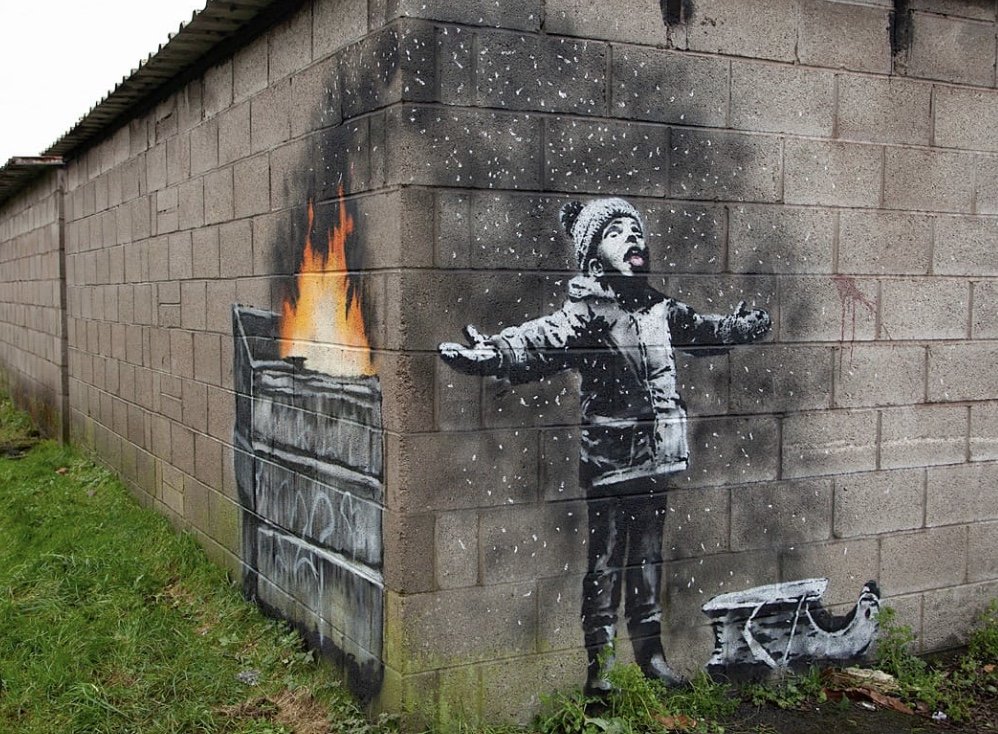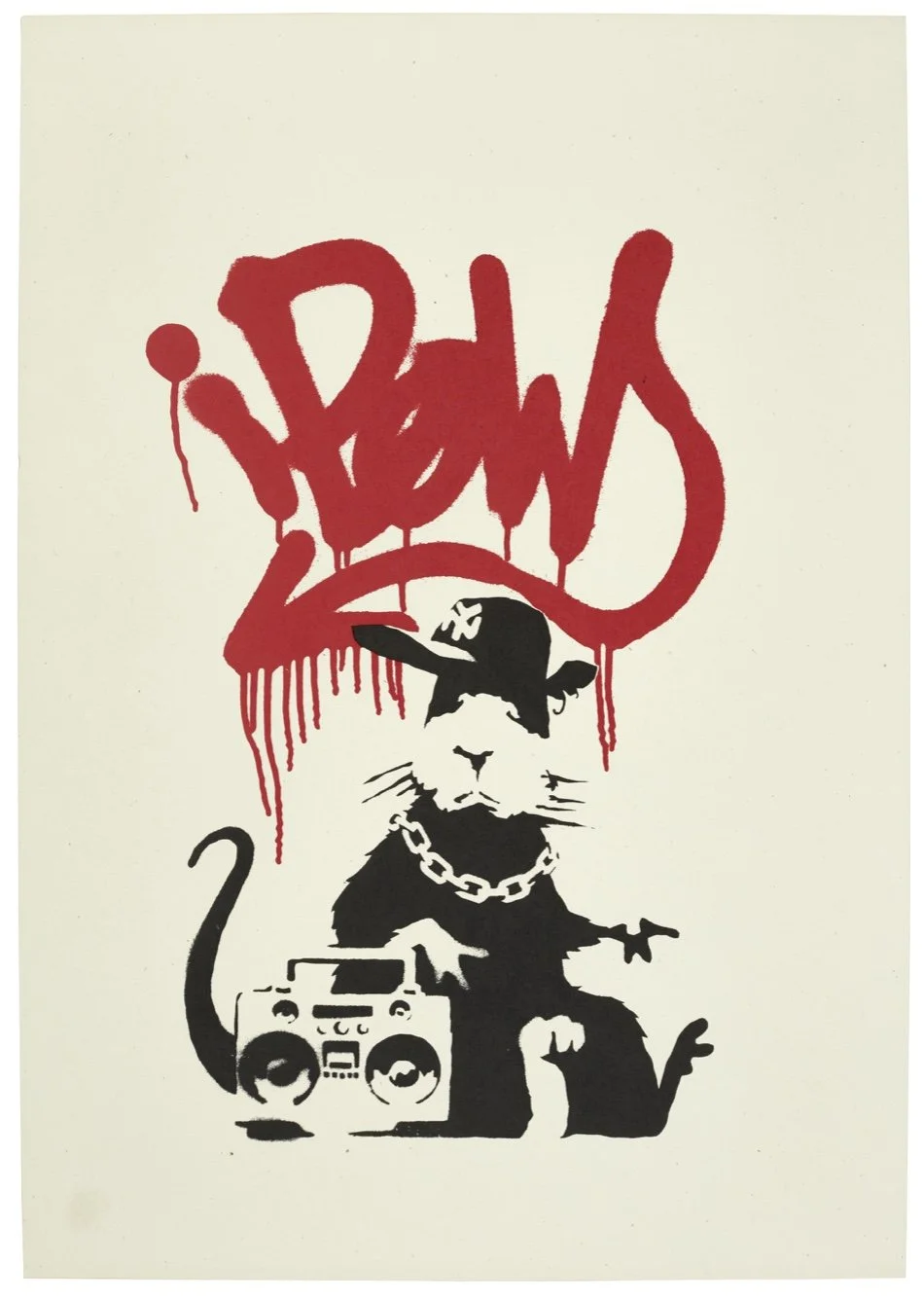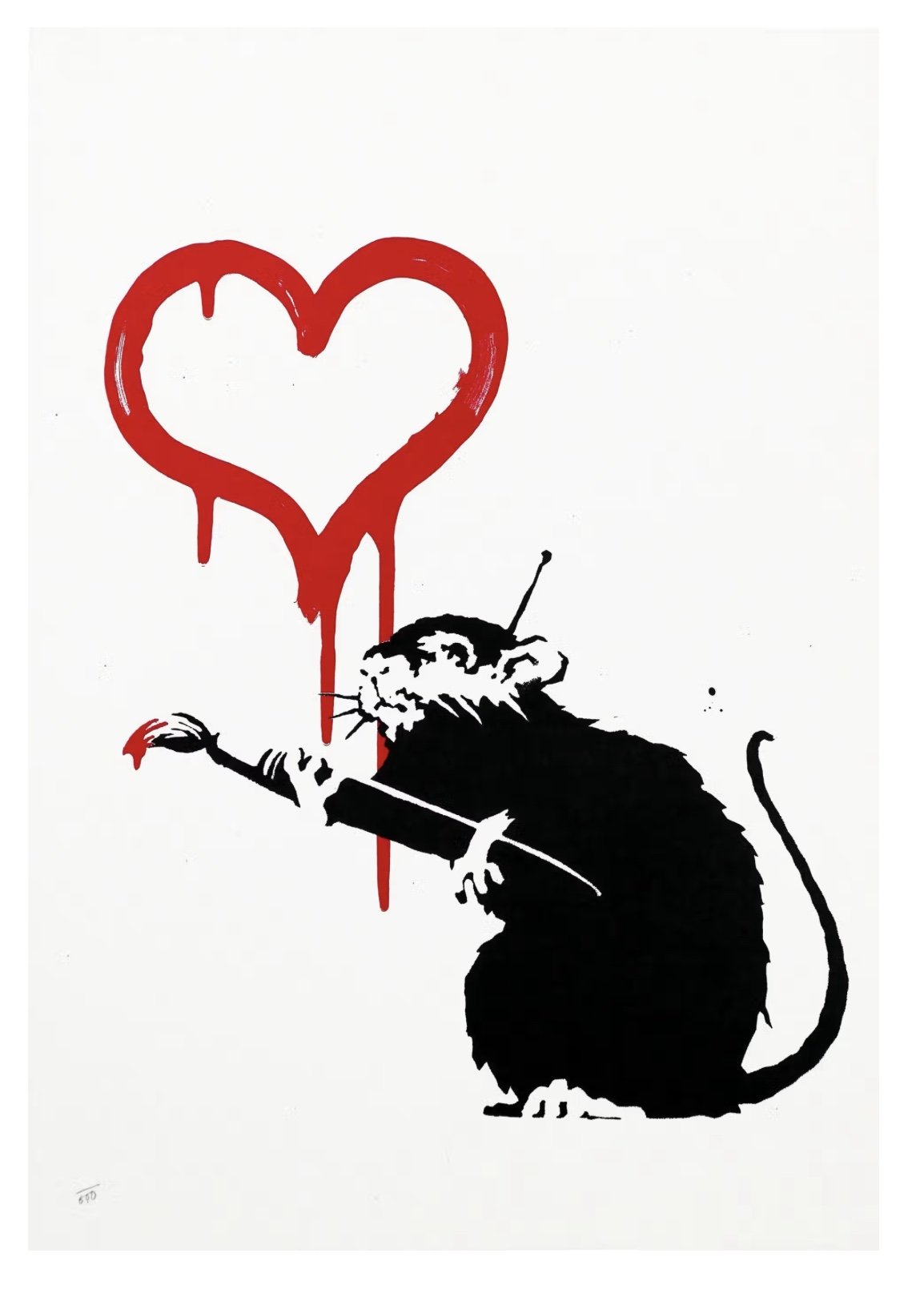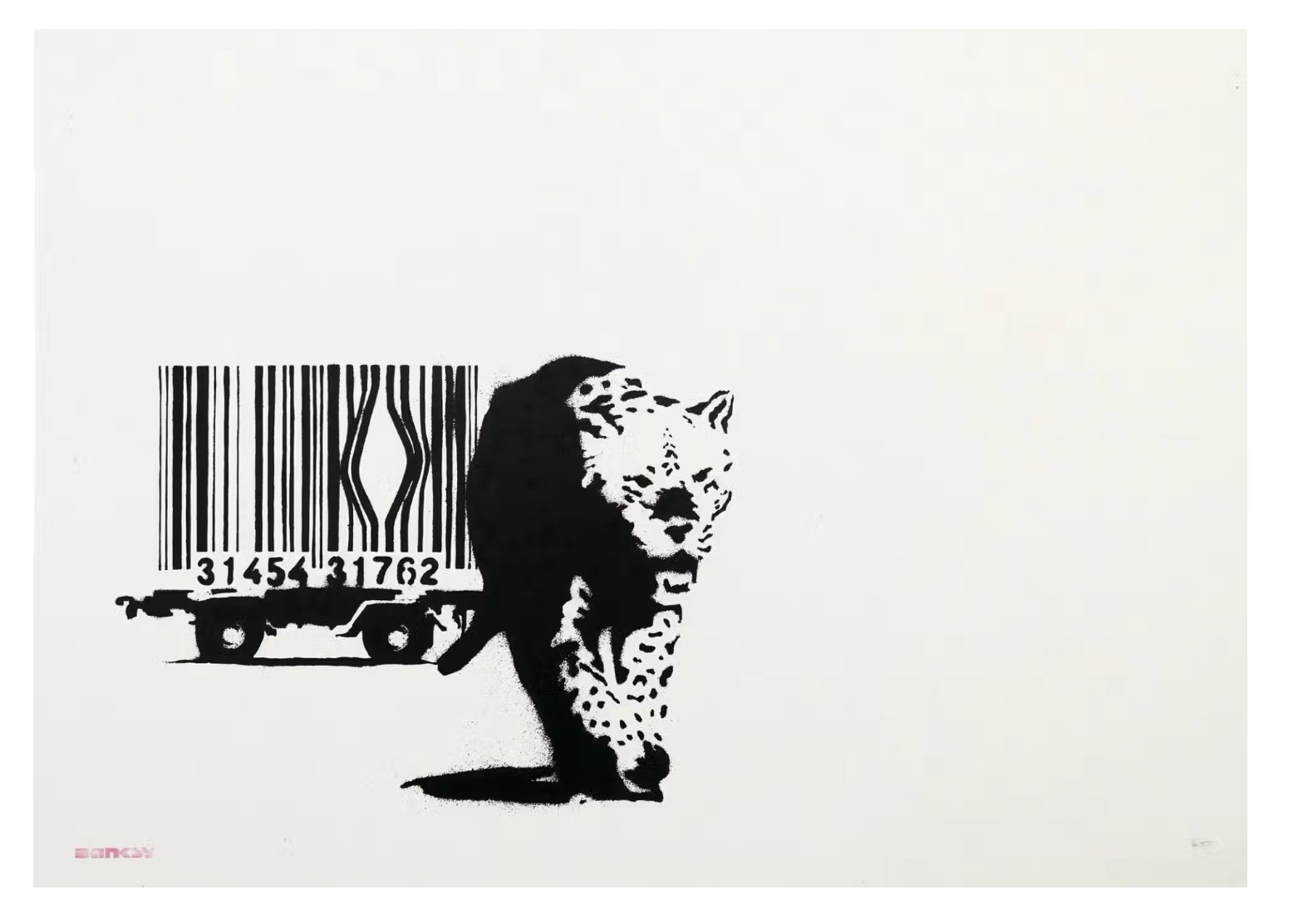Banksy
Banksy is an anonymous street artist, political activist, and filmmaker whose provocative and often satirical works have made him one of the most influential and controversial figures in contemporary art. Emerging in the 1990s from the underground scene in Bristol, England, Banksy gained international fame for his distinctive stenciled graffiti, which combines dark humor with powerful social and political commentary. His art often addresses issues such as war, capitalism, consumerism, and government surveillance, using iconic imagery—like riot police, rats, and children—to deliver sharp critiques of societal structures. Despite his anonymity, Banksy’s works are instantly recognizable and have appeared on streets, bridges, and walls around the world.
What sets Banksy apart is not just his style but also his ability to challenge the traditional art world from the outside. His pieces frequently appear unannounced in public spaces, turning urban environments into galleries for political expression. At the same time, his works have fetched high prices at major auctions, raising questions about the commercialization of anti-establishment art. Projects like Dismaland, a dystopian theme park parody, and the self-destructing artwork Love is in the Bin further blur the line between street art, performance, and institutional critique. Banksy’s elusive identity and subversive approach continue to captivate audiences and provoke debate about the role of art in society.



